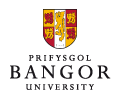- Home Page
- Composting
- Decomposition
Aims
Feedstock and Compost Mixes
Compost Production and Application - Land Restoration
- Quarry Sites
Urban Brownfield Sites
Mine Sites
Colliery Sites - Restoration results
- Quarry site - Blaenau Ffestiniog
Urban Brownfield site - Shotton
Mine site - Greece
Colliery site - Woolley Colliery - Dissemination and Publications
- Forthcoming Events
Previous Events
Open Days
TWIRLS Newsletters
Scientific Publications
Media Archive
Best Practice - Manuals and Tools - Information Services
- Best Practice - Manuals and Tools
- Our Staff

TWIRLS: Treating Waste for Restoring Land Sustainability
Information Sources
Use this section to find information about composting and decomposition, land restoration and bioremediation. References for scientific articles in peer reviewed journals can be found in our Bibliography. We’ve also provided links to useful websites (below) that cover both technical and policy issues relating to composting and land restoration.
Policy Links
Technical Links
- Composting information and organisations
- Waste management and composting research
- Bioremediation and land restoration research
Composting and waste management policy
Publicly Available Specification for Composted Materials (PAS 100) specifies the minimum requirements for the process of composting, the selection of input materials, and the quality of composted materials, as well as for the marking and information labelling of the product.
PAS 100
A case study of the forming of the PAS 100 specifications can be found on the British Standards Institution webpage.
BSI Case study
European Union legislation on wastes
EU waste legislation
European Union information on the treatment of biodegradable wastes
EU composting information
European Compost Network (ECN).
European Compost Network
Environment Agency guidance on Waste Management Licence and Exemptions needed for composting and the transporting and processing of wastes.
EA guidance on waste managment and composting
Contaminated Land Exposure Assessment (CLEA). In March 2002, the Department for Environment, Food and Rural Affairs (Defra) and the Environment Agency published a series of reports that provide a scientifically based framework for the assessment of risks to human health from land contamination.
Contaminated land assessment
Composting information and organisations
WRAP (the Waste & Resources Action Programme) is a UK government funded organisation established to promote sustainable waste management by tackling the barriers to increased recycling. WRAP also run on-site demonstration events to illustrate the viability of compost use in commercial environments.
www.wrap.org.uk
The Resource Recovery Forum is an international non-profit network of 320 organisations interested in sustainable waste management.
www.resourcesnohttp://twaste.org
Cornell University’s ‘Cornell Composting’ site is maintained by the Cornell Waste Management Institute and is extensive, exhaustive and very informative with practical advice for amateur and professional composters, publications, research and teaching resources.
http://compost.css.cornell.edu/Composting_Homepage.html
Recycling & Waste World is a weekly publication focusing on recycling and waste management in the UK. Available on-line and features a recruitment section.
www.recyclingwasteworld.co.uk
The consultancy wing of the Henry Doubleday Research Association (HDRA), a registered charity dedicated to researching and promoting organic gardening, farming and food. HDRA run the Master Composter Training Programme on which Volunteers are trained in composting and related environmental issues and are then expected to go on to promote composting in their local communities.
www.compost-uk.org.uk
The Association for Organic Recycling is the leading trade organisation for the biodegradable waste management industry in the UK
http://www.organics-recycling.org.uk/
The Composting Association of Ireland promotes composting and compost utilisation in Ireland.
www.compostireland.ie
The European Compost Network (ECN) is a collaboration of partners, promoting sustainable practices in composting, anaerobic digestion and other treatment procedures for organic residues across Europe.
www.compostnetwork.info
The Composting Council of Canada is a non-profit, member-driven organization with a charter to advocate and advance composting and compost usage.
www.compost.org
The United States Composting Council is a trade and professional organisation promoting compost.
www.compostingcouncil.org
Practical advice on how to make compost from Texan Master Composter Mary Tynes. Includes loads of helpful practical tips, FAQs, educational materials and composting message board.
www.mastercomposter.com
Waste management and composting research links
Waste research team based at Cardiff University School of Engineering studying recycling and sustainable waste management, including composting techniques.
http://www.cf.ac.uk/engin/research/waste/main/
The Wales Waste & Resource Research Centre is a virtual centre based in the Cardiff School of Engineering providing a focal point for the development and coordination of waste and resources research in Wales.
www.wwrrec.cf.ac.uk
The American journal Biocycle, published since 1960, covers all aspects of composting and organics recycling.
www.biocycle.net
Waste technology, composting and bioremediation research at Cranfield University’s Integrated Waste Management Centre.
www.cranfield.ac.uk/sims/waste/wsttech
Bioremediation and land restoration research links
The Bangor Acidophile Research Team (BART) is based in the School of Biological Sciences at the University of Wales, Bangor. BART work includes developing novel bioengineering solutions for remediating acid mine drainage and industrial wastewaters.
http://biology.bangor.ac.uk/~bsr003
CL:AIRE (Contaminated Land: Applications in Real Environments) is a public private partnership working to find practical solutions to problems stemming from contaminated land.
www.claire.co.uk
SUBR:IM (Sustainable Urban Brownfield Restoration: Integrated Management) is a research consortium of 9 organisations funded by EPSRC (Engineering and Physical Sciences Research Council). Projects include novel special purpose composts (University of Surrey) and the impacts of climate change on pollutant linkages (University of Cambridge).
www.subrim.org.uk
The Contaminated Land Assessment & Remediation Research Centre (CLARRC) is a centre of excellence incorporating departments within the University of Edinburgh, Napier University and from the Scottish Universities Environmental Research Centre (SUERC).
www.clarrc.ed.ac.uk
The Society for Ecological Restoration International (SER) is a non-profit organisation with more than 2000 members involved in repair ecologically sensitive repair and management of ecosystems. SER also publish the journal Restoration Ecology, on applied ecological research.
www.ser.org

